Politics live news Australia: Federal Health Minister says Australia tipped to reach one million vaccination mark, as Labor accuses PM of rollout ‘mess’
Nation tipped to reach one million vaccinations this week, as Labor accuses commonwealth of ‘making a mess’.
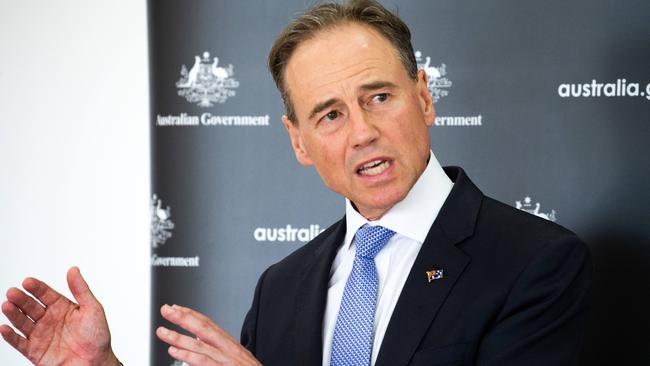
- Vaccine scheme accelerates
- Continuing AstraZeneca rollout ‘right approach’: Hunt
- Dutton slams Palaszczuk’s lockdown panic
- Health Minister says QLD cluster linked to environment
- UK logs more AstraZeneca blood clot cases
- China, Russia trying to undermine vaccine rollout
- Melbourne blood clot case ‘likely’ linked to vaccine
- Europeans spend Easter back in lockdown
Welcome to The Weekend Australia’s live rolling coverage of the day’s political events and coronavirus crisis.
Australia is tipped to have more than one million people vaccinated this week as the coronavirus vaccine rollout accelerates. Meanwhile, Labor has accused the commonwealth of “making a mess” of the scheme. Peter Dutton has slammed Queensland Premier Annastacia Palaszczuk’s three-day lockdown as “panic”, saying the default position should be to keep borders open. Health Minister Y’vette D’Ath said the Queensland hospital cluster was likely the result of environmental problems in one particular ward, which is believed to have resulted in the outbreak.China and Russia are overtly and covertly trying to undermine the COVID-19 vaccination rollout in Western countries, like Australia.
Ben Packham10.30pm: China winning battle in Pacific
Australia is in a race against time to secure millions of COVID jabs for the Pacific in the next four weeks or risk a Chinese vaccine diplomacy victory that would push regional partners closer to Beijing.
Papua New Guinea has accepted 200,000 Chinese Sinopharm jabs in recent days, and Solomon Islands Prime Minister Manasseh Sogavare says Chinese vaccines are the next step in his country’s COVID response.
Fiji says it will also accept Chinese jabs when they are approved by the World Health Organisation, which is expected to occur by the end of the month.
Australia has donated 8500 AstraZeneca jabs to PNG to vaccinate frontline health workers amid a worsening COVID crisis, but has been unable to secure a promised one million shots for the country from Europe.
Burnet Institute director Brendan Crabb said PNG, which he believes now has more than one million COVID cases, needed to source vaccines wherever it could.
He said once the Chinese vaccines received WHO approval, “I see no reason why they shouldn’t be used in PNG as well”.
“It’s an ‘all hands on deck’ situation,” Professor Crabb said.
Jamie Walker 9.55pm:Vaccine army doubles coronavirus fight
The number of medical centres delivering the COVID-19 vaccine will double this week as the federal government tries to accelerate the program after a slow month, with inoculations on track to top one million within days.
Health Minister Greg Hunt said there had been a record take-up last week — with 79,283 immunisations on Thursday alone — as he sought to reboot the relationship with the states ahead of a national cabinet meeting this Friday.
The government has delivered 387,605 vaccinations, including 111,873 in aged care, across 1270 centres. The residents of 345 of these homes had received both required doses, Mr Hunt said.
Steve Jackson9.15pm:The Premier who said no to China’s million-dollar bribe
It may seem an unlikely reaction from the leader of an impoverished province in the middle of the South Pacific but Daniel Suidani insists he is filled with an overwhelming sense of patriotism whenever he sees the words “Made in Taiwan” on products floating around his island home.
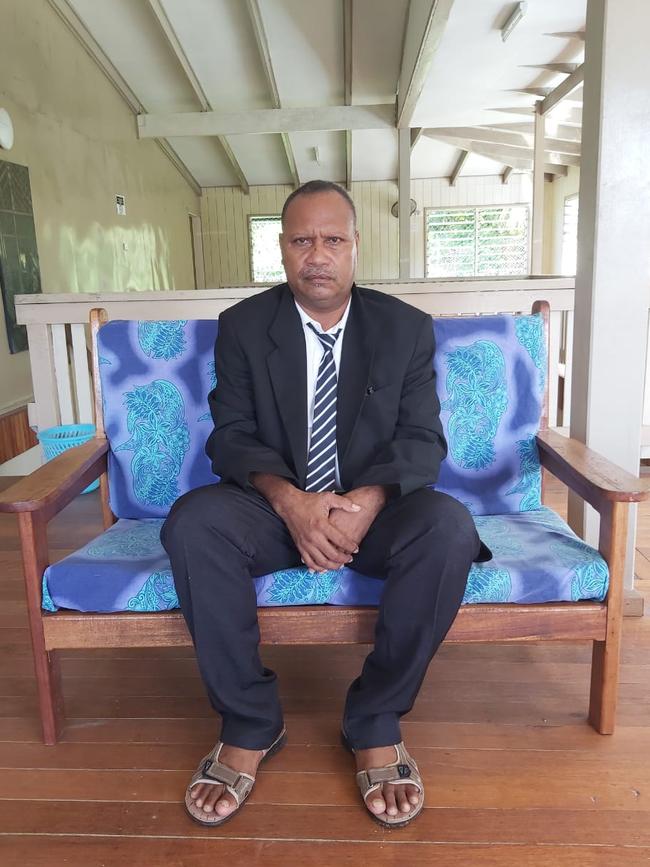
For the past year and a half, the first-term Premier of the Solomon Islands’ most populous province, Malaita, has been in open rebellion against his national government’s decision to sever its longstanding diplomatic ties with Taiwan, adopt a “one-China” foreign policy and cash in on Beijing’s political and economic ambitions in the region.
He refuses to accept any aid from the People’s Republic of China and — much to the chagrin of his country’s central government — continues to recognise the sovereignty of his “old friend” Taiwan and turn to it for help with medical supplies throughout the coronavirus pandemic.
The 51-year-old is now calling on Australia to up its involvement in his developing nation, saying he fears some of his political contemporaries in the Solomons Islands have already been compromised by China and his country’s democratic processes risk being corrupted by political interference from the communist regime.
“What we have seen with the PRC’s involvement in other countries in the region is that everything looks quite good at the start but at the end of the day, the countries eventually find it difficult to handle the problems that come with dealing with China,” he says.
“As far as Malaita goes, we don’t want any help from the PRC as we don’t want to have any constraints put on our independence.
Patrick Commins8.30pm: RBA hits $100bn bond-buy benchmark
The Reserve Bank will have spent more than $100bn propping up the economy this week — a milestone halfway through its bond-buying program aimed at pushing the dollar lower.
The RBA at its meeting on Tuesday will hail a post-COVID economic recovery that has run ahead of even its most optimistic scenarios, but will nonetheless remain committed to keeping interest rates at near zero for the foreseeable future, economists and analysts said.
In a note to clients, investment bank Morgan Stanley said despite the stronger than expected recovery, there was “still significant uncertainty around the outlook”, noting the removal of the JobKeeper wage subsidy and a “vaccine rollout which is lagging early targets”.
“For these reasons, we think the RBA is likely to remain happy to lag any improvements in the recovery outlook,” the bank’s equity strategist, Chris Read, wrote.
RBA governor Philip Lowe has already set a high hurdle for rate hikes, and last month said unemployment would need to drop to as low as 4 per cent — and perhaps lower — before labour markets would be tight enough to send wages rising by at least 3 per cent on an annual basis. Without pay climbing at that pace, inflation won’t lift sustainably within the RBA’s 2-3 per cent target, he said.
AFP 7.45pm: Philippines accuses China of plans to occupy more South China Sea ‘features’
The Philippines Defence Minister has accused Beijing of planning to occupy more “features” in the disputed South China Sea, in an escalating war of words over Chinese vessels in the waters.
China claims almost the entirety of the resource-rich sea and has asserted its stance by building up small shoals and reefs into military bases with airstrips and port facilities.
Taiwan, Vietnam, the Philippines, Malaysia and Brunei all have rival claims to the waters, which incorporate strategically crucial shipping lanes and could harbour oil and gas deposits.
A fleet of more than 200 Chinese ships that sparked a diplomatic row last month after parking at Whitsun Reef off the Philippines is now scattered across the contested Spratly Islands.
Manila has called on Beijing to withdraw the “maritime militia” vessels from the area, saying their presence is unlawful.
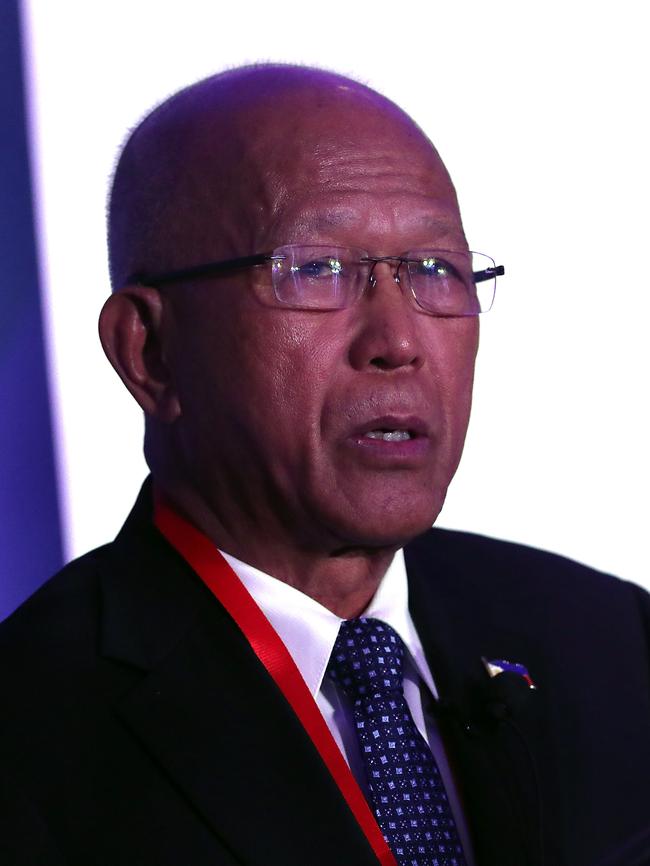
China has refused, insisting they are fishing boats and are allowed to operate there.
But Defence Secretary Delfin Lorenzana said the vessels were there for other reasons.
“The continued presence of Chinese maritime militias in the area reveals their intent to further occupy features in the West Philippine Sea,” he said on Sunday.
Mr Lorenzana pointed to China’s seizure of the Philippine-claimed Scarborough Shoal and Mischief Reef as previous examples of them “brazenly violating” his country’s sovereignty.
On Saturday, the outspoken MR Lorenzana rejected China’s claims that the boats parked at Whitsun Reef — and where dozens remained last week — had been seeking shelter from bad weather.
“I am no fool. The weather has been good so far, so they have no other reason to stay there,” he said.
“Get out of there.”
The Chinese embassy in Manila called Mr Lorenzana’s statement “perplexing” and urged authorities to avoid “unprofessional remarks which may further fan irrational emotions”.
Beijing often invokes the so-called nine-dash line to justify its apparent historic rights over most of the South China Sea, and it has ignored a 2016 international tribunal decision that declared this assertion as without basis.
READ MORE: The race to free the Ever Given
Richard Ferguson, Adeshola Ore 7pm:Unis must look beyond China, India for students
Australia’s foreign student intake from emerging markets such as Africa and South America will have to double if universities are to match enrolments from China and India, after the Morrison government urged the sector to reduce its reliance on the Asian superpowers.
Education Minister Alan Tudge last week warned the makeup of the higher education export market — in which 55 per cent of all foreign students are from China and India — was fraught. He said there must be a greater emphasis on finding emerging markets and offering more online options.
Analysis by The Australian shows all 11 countries in Southeast Asia accounted for 139,000 student enrolments in Australia’s higher education system last year and seven countries in South Asia (including Pakistan and Nepal) amounted to more than 119,000 enrolments.
South America’s eight nations accounted for just over 75,000 students, and Africa’s 23 countries made up only 12,663 enrolments.
Those figures pale in comparison with the more than 230,000 Chinese students enrolled in Australian universities last year and the more than 148,000 Indian students.
ANU higher education analyst Andrew Norton said while there had been strong growth out of South America and South-East Asia in particular, emerging foreign student markets would likely never rival China and India.
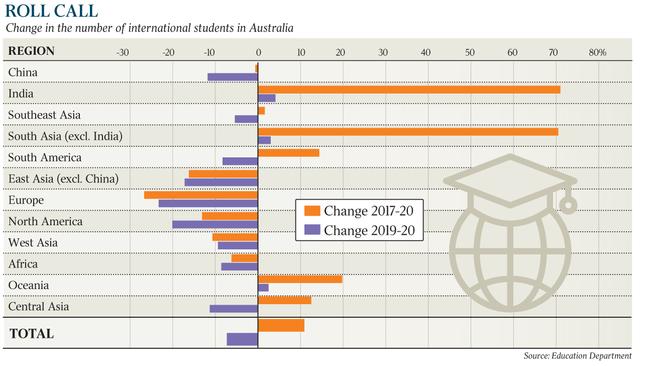
Phillip Willan 6.20pm:Venice on board for future without cruise riches
For centuries Venice relied on maritime visitors to build a lucrative trading empire and then welcomed crowds of tourists by land, sea and air.
But now the Italian government has backed a ban on large passenger and cargo ships approaching the city because of the perceived risks from a disastrous accident or environmental catastrophe.
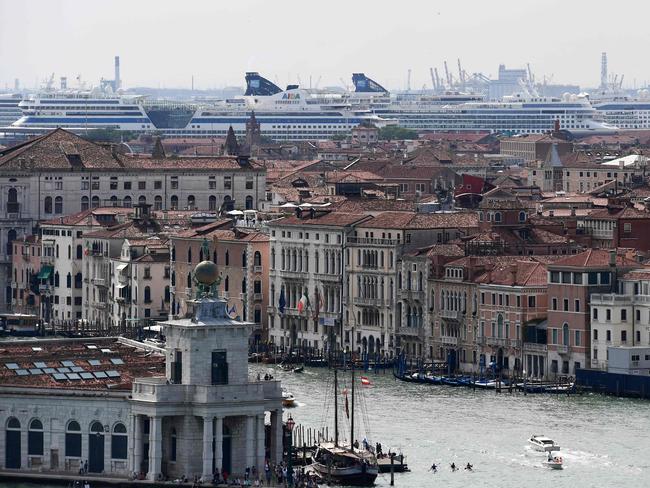
Venetians have complained for years that waves caused by massive ships are damaging the foundations of the city, which suffers from subsidence and regularly floods. They have also argued that the biggest cruise liners, complete with accommodation and dining facilities on board, can undermine the city’s tourist economy and are little more than eyesores.
The Italian cabinet agreed to proscribe them last week, and said that when the city reopened after the pandemic, the largest vessels should be routed away from historic sites such as the Giudecca canal and St Mark’s Square.
A decree approved on Wednesday called for public consultations on building a terminal outside the lagoon, where passenger vessels of more than 40,000 tonnes and container ships could berth without passing in front of St Mark’s Square.
In the interim, large boats must dock at the industrial Marghera Port, far from the Grand Canal.
Rachel Baxendale 5.30pm: Andrews sends Easter wishes
Daniel Andrews has wished Victorians a happy Easter as he recovers at home from spine and rib fractures.
The Premier tweeted on Sunday afternoon, thanking Victorians for their messages of support since a fall on slippery stairs at a Mornington Peninsula holiday house last month landed him in intensive care.
Happy Easter everyone.
— Dan Andrews (@DanielAndrewsMP) April 4, 2021
Thanks for all your messages of support over the past couple of weeks. They’ve really helped to keep my spirits up in what’s been a pretty painful time. pic.twitter.com/XitUCj2xV3
“Happy Easter everyone. Thanks for all your messages of support over the past couple of weeks. They’ve really helped to keep my spirits up in what’s been a pretty painful time,” Mr Andrews tweeted.
The Premier, who is still not expected to return to work for weeks, said he was making “steady progress” and “being diligent” with his physio exercises.
“Also building up my walking and am up to about 18 minutes on my daily walk. If you’re giving, receiving, hunting, decorating or eating eggs today – enjoy,” Mr Andrews said.
I’m making steady progress and being diligent with my physio exercises. Also building up my walking and am up to about 18 minutes on my daily walk.
— Dan Andrews (@DanielAndrewsMP) April 4, 2021
If you’re giving, receiving, hunting, decorating or eating eggs today – enjoy.
READ MORE:Iron Mike may be China’s worst nightmare
Jade Gailberger4.45pm:How many vaccinations done in each state
States and territory leaders have been in a feud with the Commonwealth following accusations they were holding back vaccines.
However, data released on Sunday showed how many vaccinations had now been completed by each jurisdiction. This includes:
NSW - 126,000 vaccinations
Victoria - 116,000 vaccinations
Queensland - 86,000 vaccinations
Western Australia - 56,500 vaccinations
Tasmania - 17,500
South Australia - 28,700
ACT - 12,500
Northern Territory - 8600
The Commonwealth has administered 387,605 vaccinations, while GPs have delivered more than 275,000.
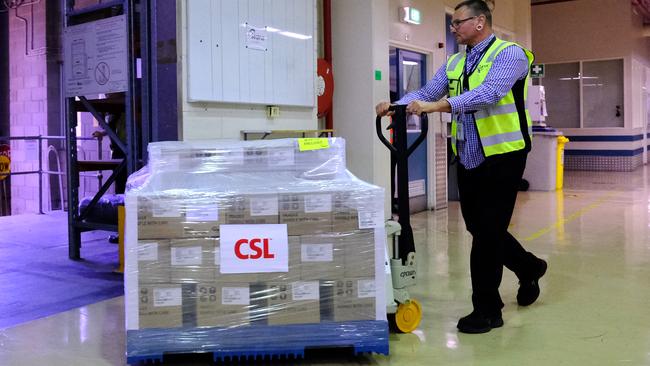
READ MORE:Coronavirus vaccine: Why clotting due to AstraZeneca is rare
Agencies4.15pm:Logjam at world’s ports deepens as pandemic strikes shipping
Towering cranes work overtime swinging containers from cargo vessels in the eastern Chinese port of Lianyungang, racing to keep ahead of a perfect storm unleashed by the pandemic that has created gridlock in global shipping.
As the huge containers were flung onto trucks with a thunderous clang, Shi Jiangang, a top official with Chinese shipping company Bondex Logistics, reflected on the backlog.
“It’s been a very great challenge,” he said.
The ship being offloaded was a South Korean vessel that normally also carries passengers but has been given over entirely to cargo. In the distance, a fleet of other vessels waited offshore.
Lianyungang is not alone.
The global shipping network that keeps food, energy and consumer goods circulating -- and the world economy afloat -- is facing its biggest stress test in memory.
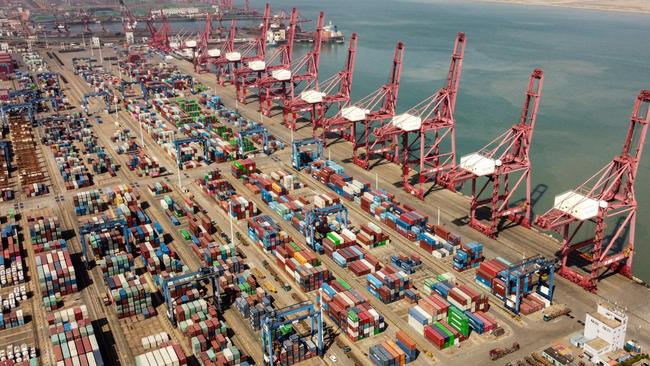
Maritime trade came under the microscope after a Japanese-owned megaship ran aground in the Suez Canal, blocking the busy channel for nearly a week.
It was refloated last week but the larger crisis remains, amid warnings that soaring freight costs could affect supplies of key goods or consumer prices.
The situation arose last year as the expanding pandemic jammed the sprawling, predictable patterns by which shipping containers are shared around the world’s ports.
When many countries began easing Covid-19 restrictions late last summer, a wave of pent-up demand from hunkered-down consumers bingeing on internet purchases delivered a shock to supply lines.
Exports from nations like China soared.
But since the end of 2020, vessels have piled up outside overburdened Western ports, leaving Asian exporters clamouring for the return of empty containers needed for further shipments.
At Lianyungang -- China’s 10th-busiest port, according to the World Shipping Council -- desperate firms are pressing rail-cargo containers into maritime service, placing rush orders for new ones, and rerouting some shipping to other Chinese ports.
The price to ship a 40-foot container from Lianyungang to the United States has soared to more than $10,000, from the usual $2,000-$3,000, Shi said.
The situation is “putting pressure on everyone in the supply chain”, he said. American consumer demand has been a key driver.
READ MORE:Global supply chains still a source of strength
Agencies3.30pm:Paris medics fear worst of third Covid wave still to come
In the Covid-19 intensive care unit of the Antony Private Hospital south of Paris, no bed stays free for long and medics wonder when their workload will finally peak.
As one recovered elderly patient is being wheeled out of the ward, smiling weakly, boss Jean-Pierre Deyme is on the phone arranging the next arrival and calling out instructions to staff.
Louisa Pinto, a nurse of nearly 20 years’ experience, gestures to the vacated room where a cleaner is already at work, scrubbing down the mattress for the next arrival.
“The bed won’t even have time to cool down,” she says as the patient monitoring system beeps constantly in the background.
For now, everything is stable in the 20-odd beds around her where Covid-19 victims lie inanimate, in a silent battle with the virus.
Paris is going through a third wave of the pandemic which risks putting even more strain on saturated hospitals than the first wave in March and April last year.
“With what’s coming in April, it’s going to be very complicated,” says Pinto, a mother of three who hasn’t had a holiday since last summer and like other staff will be cancelling a planned break this month.
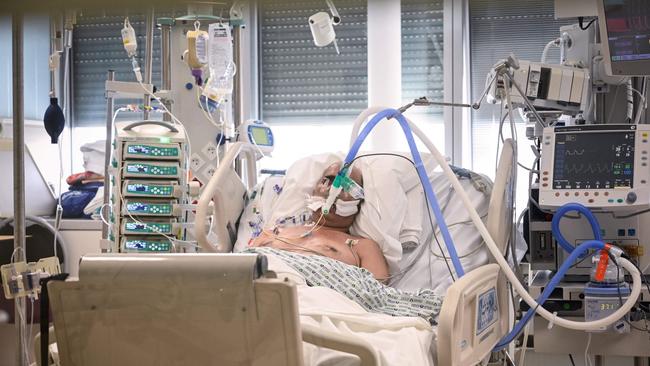
Even with a new round of restrictions coming into force this week, Health Minister Olivier Veran predicts that infections in France will peak only in mid-April, while hospital admissions will continue climbing until the end of the month.
Alarming forecasts leaked to the French media from the Paris public hospital authority AP-HP last week showed anywhere from 2,800-4,400 people in intensive care in the Paris region by the end of April even with a strict lockdown.
In the first wave, the number peaked at 2,700.
Last Sunday, a group of emergency care directors in Paris warned in an open letter that the situation was so bad that medics would soon have to start “triage” -- selecting patients for care based on their chances of survival.
This prospect horrifies staff -- and President Emmanuel Macron has always promised to shield hospitals and avoid the sort of scenes witnessed in Italy last March when patients piled up in corridors.
In a televised speech to the nation on Wednesday night, he promised to increase intensive care capacity nation-wide from 7,665 beds currently to 10,000 -- a jump of 30 percent.
Macron is also banking on a limited lockdown over the next month turning the rising tide of cases which have roughly doubled to 40,000 a day compared with their level a month ago.
The sharp acceleration is down to the spread of the more contagious so-called British variant which has become dominant in France.
Only a significant increase in the vaccination campaign -- which started sluggishly but is now picking up pace -- fills any of the medics at Antony Private Hospital with any hope.
AFP
READ MORE:Airlines want vaccine passports but don’t want to pay for them
Agencies2.50pm:Vaccine tourists welcome as Serbians say ‘no thanks’ to jabs
While most of the world struggles to secure enough Covid-19 vaccines, Serbia faces a different battle -- how to persuade its citizens to get the life-saving shot.
The small Balkan country has so many vaccines available it has even offered jabs to any foreigner who can get themself there, sparking an influx of thousands of “vaccine tourists” from neighbouring countries.
The situation is the result of a diplomatic juggle between East and West that saw Belgrade secure deals for nearly 15 million vaccine doses for its population of seven million.
With around three million doses already in hand -- a buffet of Pfizer, AstraZeneca, Sputnik V and Sinopharm -- and two million of those already administered, one of Europe’s poorest corners has quickly found itself among the continent’s fastest vaccinators.
However, according to the government, little more than a quarter of those eligible to receive the precious shot applied for one.
After Serbia vaccinated most of those who came forward, the pace started to stall.
In the last two weeks of March, the number of people receiving their first dose dropped to around 12,000 daily, roughly half the number over the same period in February, according to data collected by AFP from official sources.
With jabs in abundance, last week Serbia took the highly unusual step of offering foreign citizens the chance to apply to have the shot. Migrants have also been offered the vaccine.
The authorities also urged Serbian citizens who had still not been inoculated to simply show up without an appointment.
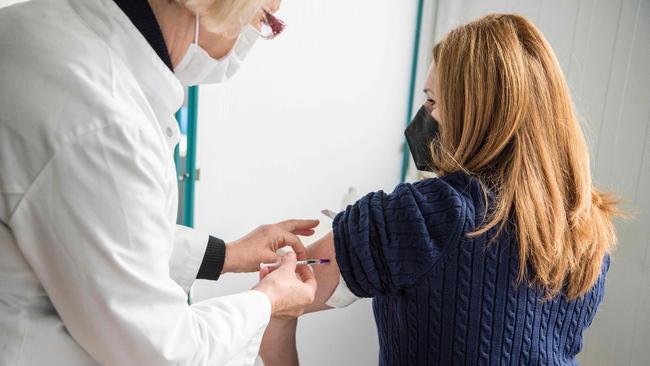
“I beg you, people, get a vaccine,” Serbian populist President Aleksandar Vucic pleaded.
“We have them and we will have more, I beg you, in the name of God, take them,” he said.
Serbian doctors fear that take-up of the jab has peaked.
“It’s clear that there is not a sufficient number of people willing to get vaccinated,” president of a doctors’ union Rade Panic told AFP.
According to Serbia’s leading epidemiologist Predrag Kon, lack of interest is “solely a consequence” of anti-vaccine misinformation being spread online by fearmongers.
“I’ve been doing this job for many decades and I have seen their power of persuasion,” Kon said, adding that “one or two percent” of the anti-vaxxers “can easily affect up to 50 percent of the undecided”.
Rachel Baxendale2.30pm:Andrews blamed for Victoria’s vaccine lag
Victorian opposition frontbencher, Tim Smith, has blamed the Andrews government for the state’s lagging vaccine rollout.
“As of last week, only 44 per cent of the jabs that Victoria had been given had been injected into Victorians’ arms. That is a fact,” Mr Smith said.
“Victoria had been given, I think off the top of my head 195,000 doses of the vaccine. Yet only 44 per cent of those doses had been injected into Victorians’ arms. Why?”
Less than half of the vaccines provided to the Andrews Labor govt have been injected (by them) into Victorians' arms. What's the hold up?
— Tim Smith MP (@TimSmithMP) April 1, 2021
Typically, they are trying to blame the Federal govt.
WRONG.
It’s State's responsibility, along with GPs, to administer the vaccine. pic.twitter.com/ohSBUWbFpT
Mr Smith said the Melbourne Convention and Exhibition Centre at Docklands, colloquially known as “Jeff’s Shed” after former Premier Jeff Kennett, was a “ghost town” despite being one of the key state government-administered vaccination sites.
“I had a friend of mine who was vaccinated last Monday and he couldn’t believe how quiet it was,” Mr Smith said.
He blamed “supply chain issues from Europe” for the federal government’s slow procurement of the vaccine.
READ MORE:Jeff Kennett push divides Victorian Liberals ahead of poll
Adeshola Ore2.23pm:Butler accuses PM of rollout ‘mess’
Opposition health spokesman Mark Butler has urged the Morrison government to provide updated COVID vaccine targets, accusing the commonwealth of “making a mess” of the rollout.
Health Minister Greg Hunt said more than 841,000 Australians had received a COVID vaccine by Saturday evening. Asked when every person in phase 1a would be vaccinated Mr Hunt said the stages had always been presented as “ongoing” because of “late entries” into the categories.
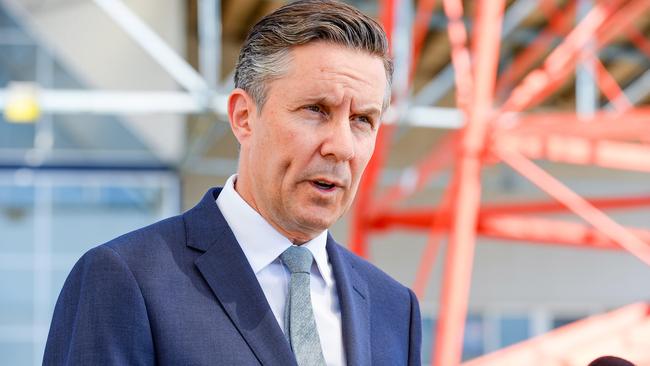
Mr Butler accused the commonwealth of failing to deliver its responsibility to vaccine the most vulnerable Australians.
“We need to know what the new target dates are for these vaccine rollouts. Clearly the ones that Scott Morrison gave Australians have fallen by the wayside, they are no longer even discussed by Minister Hunt or the Prime Minister,” he said.
“Scott Morrison committed to there being 4 million vaccinations by the end of March... we haven’t even reached one million yet.”
READ MORE:On vaccines, Scott Morrison and Greg Hunt deserve the egg on their faces
Evin Priest2.20pm:South Australian Covid patient in critical condition
A patient infected with a mutant strain of COVID-19 who was hospitalised in Adelaide is now in a critical condition, health authorities have confirmed.
The man, in his 40s, is one of 12 people in South Australia with COVID-19, all of whom acquired the virus overseas.
South Australian COVID-19 update 4/4/21. For more information, go to https://t.co/mYnZsGpayo or contact the South Australian COVID-19 Information Line on 1800 253 787. pic.twitter.com/6691UOyJz1
— SA Health (@SAHealth) April 4, 2021
SA Health moved the man, who has the South African variant of the virus, from a dedicated quarantine hotel for positive cases to the intensive care unit at the Royal Adelaide Hospital.
SA Health confirmed to NCA NewsWire the man’s condition had been upgraded from serious but stable to critical.
It comes a day after SA acting chief public health officer Michael Cusack said the man had the South African variant, that contains a mutation which appears to make it more contagious.
“One person was taken from Tom’s Court (medi-hotel) to the Royal Adelaide Hospital this morning because they were unwell and are currently being assessed there,” Dr Cusack said on Saturday.
“This is a male in his 40s we believe has the South African variant.
“Clearly if someone is deemed unwell enough that they have to go to hospital, we have concerns for their welfare, but obviously they are in the right place.”
READ MORE:’Unusual’: Probe into hospital virus spread
Adeshola Ore2.04pm:Experts clear on continuing AstraZeneca rollout: Hunt
Health Minister Greg Hunt says the expert medical advice is clear about Australia continuing the rollout of AstraZeneca coronavirus vaccinations after a Melbourne man who received the jab fell ill with a rare blood clotting condition.
The Friday hospitalisation prompted an urgent meeting of independent experts on Saturday morning. But the Australian Technical Advisory Group on Immunisation and the Therapeutic Goods Administration did not recommend changes to the vaccine rollout.
Mr Hunt said the federal government would continue to follow the advice of the country’s medical experts.
“The advice has been clear,” he said.
“The course of events reaffirms that this is the right approach and that a full and thorough approach to safety and medical advice is the pathway forward.”
Australia’s health regulators are consulting with international regulatory agencies about the clotting case. Australians who have received the AstraZeneca vaccine are urged to be vigilant for symptoms.
READ MORE:Melbourne man’s blood clot condition ‘likely’ linked to vaccine, but rollout to continue
Adeshola Ore1.46pm:CSL AstraZeneca supply has accelerated rollout: Hunt
Health Minister Greg Hunt says CSL’s manufacturing of the AstraZeneca jab has accelerated the nation’s vaccine rollout.
Mr Hunt said more than 841,000 Australians had now been vaccinated, with a record number 79,283 people inoculated on Thursday.
“As we see, supply determines the rollout and as the CSL supply has come on board, we have been able to rapidly accelerate the rollout,” he said.
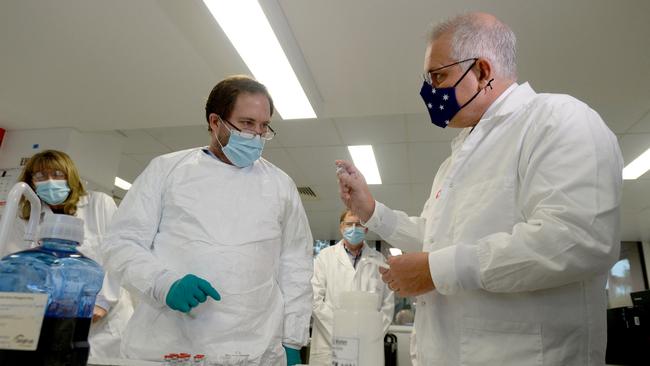
The record puts Australia in prime position to have more than one million people vaccinated this week.
Australia recorded no new locally acquired cases of coronavirus on Sunday.
Mr Hunt said the results from NSW and Queensland after the recent outbreak in Brisbane were “very heartening.”
“We know how to do this. We know when there are cases and what we have to do. Some of these decisions are difficult but they are lifesaving,” he said.
Adeshola Ore1.35pm:Qld’s Deputy Premier fires back at Dutton
Queensland Deputy Premier Steven Miles has hit back at Defence Minister Peter Dutton after he slammed the state’s three-day lockdown as a “kneejerk” and “panic” response.
His comments come after a stoush erupted between Queensland and the commonwealth this week over COVID vaccines, with Mr Miles accusing the Morrison government of hindering the rollout by not providing states with certainty of supply. NSW Health Minister Brad Hazzard also attacked the commonwealth government about the distribution of vaccines.
Speaking on Sunday after coming out of lockdown, Mr Dutton told Sky News state leaders should be able to cope with a few coronavirus cases without ordering a city-wide lockdown.
On Twitter, Mr Miles lashed out at Mr Dutton’s comments, saying a lockdown might not have been needed if the Morrison government had reached its target to inoculate four million people by the end of March.
“You’d think on Easter Sunday the Morrison government could take a day off attacking our Premier,” he said.
We might not have needed the lockdown if you’d delivered the 4 million doses you promised by 31 March.
— Steven Miles (@StevenJMiles) April 4, 2021
Maybe the new defence minister could help get our aged care workforce vaccinated?
Queensland recorded no new locally acquired COVID-19 cases on Sunday.
Coronavirus restrictions remain in place across the state despite Brisbane’s lockdown ending on Thursday.
Rachel Baxendale1.15pm:Morrison government’s vax approach ‘retrograde’
Victorian Treasurer Tim Pallas has slammed the Morrison government’s insistence on refusing to use existing state and local government resources for the COVID-19 vaccine rollout as “retrograde”, saying the state is on track with its vaccination responsibilities and stands ready to help the Commonwealth if necessary.
Mr Pallas said the Andrews government had recently passed the milestone of 100,000 vaccinations, putting it ahead of the target set for the state by the federal government.
“We’ve made it clear to the Commonwealth that we think there needs to be greater transparency in terms of their rollout. The Commonwealth has not been declaring exactly how many vaccinations they’ve been providing,” Mr Pallas said on Sunday.
“They’re supposed to do two thirds of the job of vaccination of the population. We’re charged with the responsibility of doing a third. We’re on track, and it would appear that they’re having difficulties.”
Mr Pallas said one of the Morrison government’s key “difficulties” was that they were “trying to build a system of mass vaccination that the states and local government already have a capacity for.”
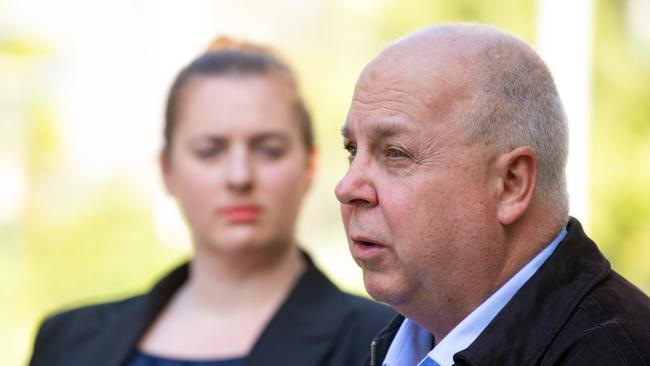
“We have been telling the Commonwealth this. I’ve been telling the federal Treasurer (Josh Frydenberg) this for some months now, that trying to build from scratch a system of the nature that the states and local government are capable of delivering is a retrograde step and one that will only delay the rollout,” Mr Pallas said.
“Certainly, our view is we would be more than happy to assist the Commonwealth, if the Commonwealth, were prepared to ask for assistance and provide the same sort of financial return that they’re providing doctors for the delivery of vaccination shots.
“The states have made it clear, that we have a greater capacity, but the Commonwealth have to admit they’ve got a problem before we get started on this, and importantly I think from our perspective, we want to help.
“We know that we can help the Commonwealth, but they need to demonstrate a willingness to work cooperatively with us, rather than what I think have been reasonably facile attempts at blame-shifting up until now.”
Mr Pallas warned delays in rolling out the vaccine would impact the economy.
“We will continue to see consumer sentiment substantially adversely affected while ever there is concern around COVID. We have to get back, not to a COVID normal, but to a normal, and the only way we can do that is through a comprehensive vaccination regime being rolled out,” he said.
READ MORE: Janet Albrechtsen — Morrison’s vaccine distraction has backfired badly
Adeshola Ore1pm:Albanese calls for Christian values to guide the nation
Anthony Albanese has wished Australians a “happy and holy” Easter, as he called for Christian values to guide the nation as it emerges from the Covid pandemic.
The Opposition Leader said despite Australia having a “long way to go” to recover from Covid, it was important to share the joy of Easter with loved ones.
“I hope that you’re able to gather sensibly and safely with your loved ones and your parish community,” Mr Albanese said in a video message.
“It is important that our Christian values guide us as we begin to emerge from the pandemic. It is a sense of fairness that radiates from the teaching of Jesus, through the books of the New Testament and must guide us as we support our communities.”
“Whether you’re volunteering as part of your congregation or here in parliament, fairness must always lead our work.”
READ MORE:Paul Kelly — Albanese up for the fight, but women’s movement won’t win it
Agencies12.45pm:Argentine President tests positive despite vaccination
President Alberto Fernández tested positive for the coronavirus more than two months after being vaccinated with a Russian-made shot, the government said Saturday.
Mr. Fernández went into self-quarantine on Friday after he came down with a headache and fever as the country grapples with a surge of new infections and struggles to ramp up its vaccination campaign.
A rapid antigen test, which searches for viral proteins instead of the virus’s genetic code, came back positive. Mr. Fernández, who turned 62 years old on Friday, also took a more accurate PCR test, which confirmed the infection.
Mr. Fernández was showing mild symptoms, thanks in large part to protection from the vaccine, Federico Saavedra, the president’s doctor, said in a statement.
Mr. Fernández, a member of Argentina’s nationalist Peronist movement, received the first shot of Russia’s Sputnik V vaccine on Jan. 21 and the second dose on Feb. 11.
The Gamaleya Institute, which developed the Sputnik vaccine, said it was sorry to hear of Mr. Fernández’s infection. It said the vaccine is 91.6% effective against preventing infections and 100% effective in preventing severe cases.
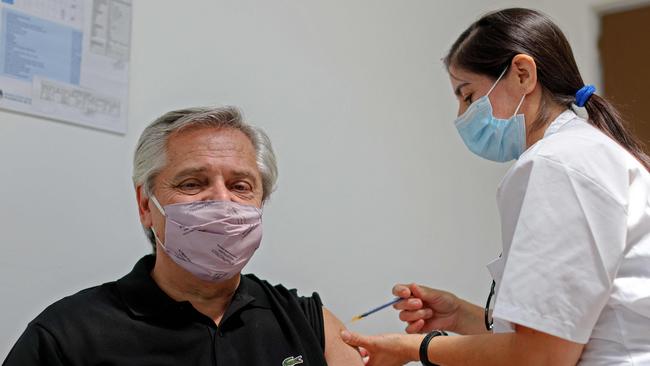
“The vaccination ensures quick recovery without severe symptoms,” it said on Twitter. “We wish you a quick recovery.”
The Gamaleya Institute: We are sad to hear this. #SputnikV is 91.6% effective against infection and 100% effective against severe cases. If the infection is indeed confirmed and occurs, the vaccination ensures quick recovery without severe symptoms. We wish you a quick recovery!
— Sputnik V (@sputnikvaccine) April 3, 2021
Argentina was the first major country to use the Sputnik vaccine outside of Russia, delivering the first shots in late December before a peer-review study of its trial results. Some Argentines were initially distrustful of the state-sponsored Sputnik V due to a lack of transparency in its development.
The government has since struggled to secure enough shots to ramp up vaccinations. It has so far delivered a first shot to 3.5 million people, or 7.7% of the population. Just 1.5% of Argentines have received two doses.
Coronavirus infections are rising sharply in Argentina, leading authorities to say they may need to implement another lockdown after one of the world’s longest and toughest quarantines last year. That lockdown caused a 10% contraction in the country’s economy in 2020, leading to rising poverty in a country that was already facing a financial crisis before the pandemic.
New daily coronavirus cases rose above 12,000 on Thursday, more than double the number of infections a month earlier and the highest number since October.
Argentina’s government said it would conduct a test to determine which strain of the virus infected Mr. Fernández.
READ MORE:Pompeo as president would be China’s worst nightmare
Agencies12.20pm:Germans protest in thousands against virus curbs
Thousands of people protested in Stuttgart on Saturday against virus restrictions amid a heated debate throughout Germany on tightening the measures in the face of a third wave of Covid-19.
The protesters, few of whom were wearing face masks, marched from the city centre to a main square in northeastern Stuttgart.
Police in the southwest city said the marchers ignored requests to don masks and to adhere to social distance rules, though there were no reports of major incidents.
The movement opposing social restrictions, known as “Querdenken (Anticonformist)”, has held regular protests in Germany since the start of the pandemic.
It brings together members of the extreme left and far right alongside conspiracy theorists and anti-vaccination groups.
On March 20, 15,000-20,000 assembled in the city of Kassel, leading to clashes with police and many arrests.
In Stuttgart, the marchers on Saturday held banners with the slogan “End the dictatorship of Covid”.
“The measures are over the top,” said Evelyn, one of the demonstrators who called for “an end to the lockdown”, adding that she didn’t believe the official figures of Covid cases and deaths.
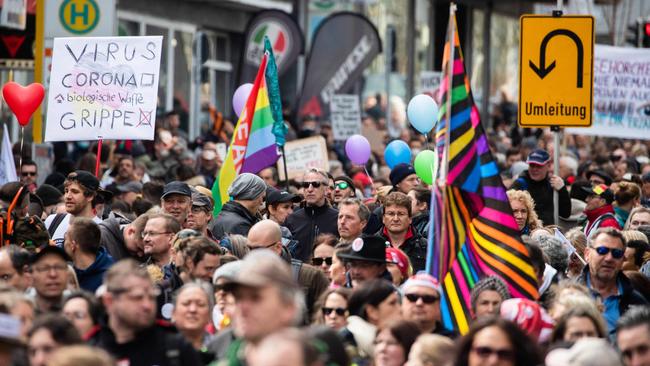
Fellow marcher Rainer said; “I am against being obliged to have a vaccination”. The protests are happening to the backdrop of a fierce debate in Germany over ratcheting up the Covid restrictions in the face of a surge in infections.
The government is “studying” the possibility of introducing uniform measures across German states “to stop a third wave if the regional measures are insufficient”, a spokesman said Saturday.
Chancellor Angela Merkel favours strict measures to contain the virus, with the incidence rate reaching 131 cases per 100,000 people over the past week.
In a recent televised interview she called for the introduction of curfews, which have never been applied at a national level, and threatened to impose stricter measures at a federal level if the regions, which are responsible for health matters, do not take sufficient action.
On Thursday she urged Germans to limit their social contacts over the Easter break.
READ MORE: Smartest person in the room for two decades
Agencies12.05pm:Canada surpasses 1 million cases, as third wave hits
Canada on Saturday crossed the threshold of one million coronavirus cases as the country faces a third wave of infections, forcing several provinces to tighten restrictions in recent days.
With 2,000 new cases of Covid-19 announced in British Columbia on Saturday evening, Canada topped one million cases since the start of the pandemic, according to figures reported by Canadian broadcasters.
Just over 23,000 people have died.
Canada is grappling with a third wave of cases amid the rapid spread of variants, which are more contagious.
The two most populous provinces, Ontario and Quebec, headed into the Easter weekend tightening public health measures.
Ontario, home to more than a third of Canada’s cases, stepped up restrictions for at least four weeks.
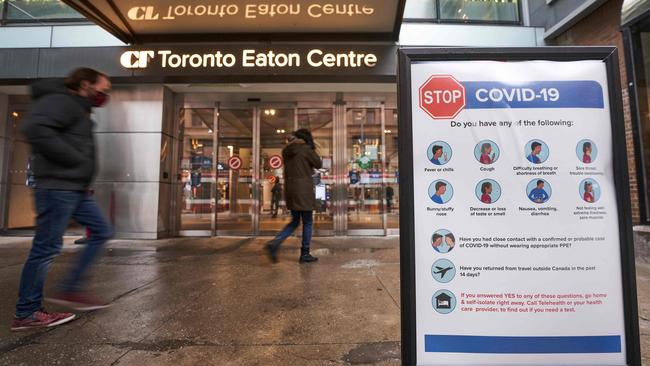
Non-essential businesses are held to 25 percent capacity, while others can accommodate 50 percent capacity.
Sports venues and hair salons are closed, though schools remain open and residents have not been ordered to stay home.
The second worst-hit province, Quebec, strengthened restrictions in several regions while maintaining a nighttime curfew imposed in early January that is unprecedented in Canada.
Meanwhile, vaccinations have been slow to get off the ground. An inoculation program launched in December has been plagued by delays in deliveries of Pfizer-BioNTech and Moderna doses from Europe. In addition, new age restrictions were imposed on the AstraZeneca jab, over safety concerns.
To date, 14.6 percent of the population has received at least one vaccine dose, according to the Covid-19 Tracker Canada website.om/acb/st
READ MORE:Canada urges halt in use of AstraZeneca COVID-19 vaccine in under 55s
Staff writers11:30am:NSW records no new local Covid cases
One new case was recorded in hotel quarantine.
There were 6,249 tests conducted in the last 24 hours.
NSW recorded no new locally acquired cases of #COVID19 in the 24 hours to 8pm last night. One new overseas-acquired case of COVID-19 was recorded in the same period, bringing the total number of cases in NSW since the beginning of the pandemic to 5,111. pic.twitter.com/zGhKfw9VQo
— NSW Health (@NSWHealth) April 4, 2021
Jade Gailberger11.05am:Palaszczuk’s Covid lockdown was ‘panic’: Dutton
Peter Dutton has slammed Queensland Premier Annastacia Palaszczuk’s three-day lockdown as “panic”.
Coronavirus restrictions remain in place across the state despite the Greater Brisbane lockdown ending on Thursday.
Speaking to Sky News after coming out of lockdown, Queensland MP Mr Dutton said leaders should be able to deal with an outbreak of a few cases.
“There has been from the start, probably even in this latest example, been a bit of panic by Premier Palaszczuk,” Mr Dutton said on Sunday.
“We’re lucky that the cases ultimately dwindled and the contact tracing was effective.”
The nation’s new defence minister said the default position should be to keep borders open because people were being vaccinated.
“I hope it is in the past because it’s incredibly disruptive, and it makes it very difficult for people to be able to plan,” Mr Dutton said.
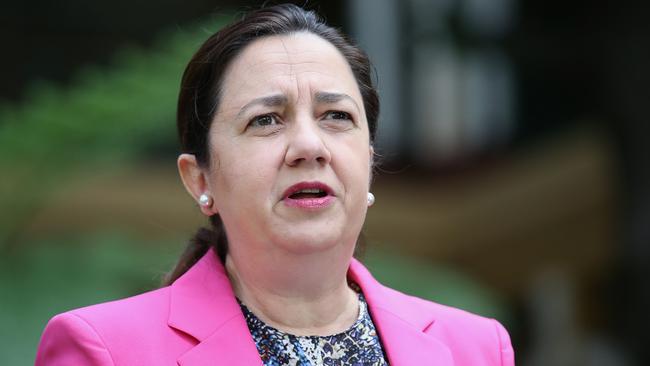
“We want to make sure that people’s businesses are viable, particularly over the coming months, and the close of borders in a kneejerk way just does not help that.
“There was a lot of worry from tourism operators, and rightly so, that bookings would fall away dramatically.
“People would obviously not be able to go to restaurants yet all of their shelves are stocked, they had meat and all the food rotting, that otherwise would have been served to people over a very busy period of Easter.”
Queensland recorded no new locally acquired COVID-19 cases on Sunday.
Health Minister Yvette D’Ath said one overseas traveller had tested positive for COVID-19.
READ MORE:Young Queensland couple sell $600m streetwear brand
Evin Priest10.48am:Queensland confident it has got on top of outbreak
Queensland Health Minister Yvette D’Ath says state health officials are now confident they have the two COVID-19 clusters under control.
The state recorded no new cases of community transmission in 25 hours, allowing Queenslanders to relax over Easter.
“(It is) fantastic news. That, along with the one case yesterday, the one locally acquired case that was already in quarantine really high lights, I think, that we are making great progress in this most recent outbreak,” Ms D’Ath said.
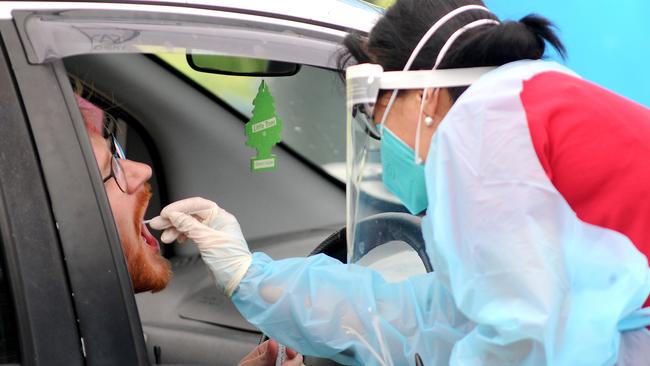
“We know COVID is not over and we are seeing still some disturbing statistics internationally – positive cases are happening every day overseas and people’s lives are being lost.
One of the clusters emerged from the Princess Alexandra Hospital, but Ms D’Ath said the ward of concern, ward 5D, had undergone a deep clean since the two clusters emerged.
READ MORE:Covid sinks sales on Brisbane River
Simon Wilde10.30am:Random checks to keep cricket Covid free
Test venues are considering randomly asking spectators for evidence of vaccination or a negative Covid test as a means of ensuring that capacity crowds can watch England matches safely after restrictions are set to end on June 21.
Spectators, who have for years been randomly subjected to bag searches on entering grounds, would be questioned about whether they have been vaccinated, or had an antibody, lateral flow or PCR test. If they could not provide proof, they would be asked to take a rapid lateral flow test. Only if they refused, or tested positive, would they be denied entry.
In a separate development, Lord’s and Edgbaston, which will host Tests against New Zealand in early June, when most crowds will be capped at 25 per cent, are hoping to persuade the government to allow them 50 per cent attendances (about 15,000 at Lord’s and 12,500 at Edgbaston).
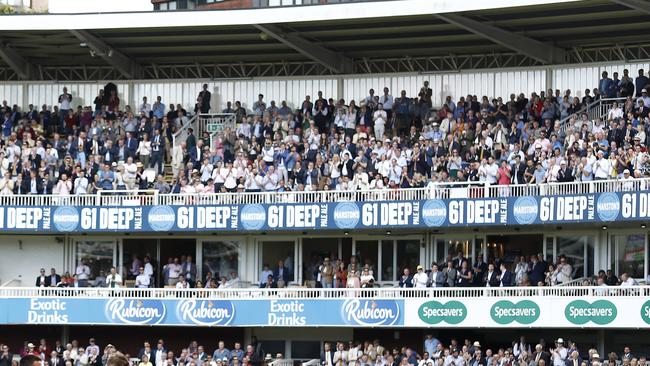
“Current guidance says that on June 21 all restrictions on social distancing will be removed but what is not entirely clear yet is what is staying, whether it’s facemasks, lateral flow tests, or the like,” said Daniel Gidney, the chief executive of Lancashire, whose Emirates Old Trafford ground is due to host a Test against India and a T20 against Pakistan.
READ MORE:Sports quiz: Test your knowledge
Staff writers10.05am:No COVID-19 cases recorded in Victoria
Victoria has recorded no new local cases of coronavirus for the 37th day in a row.
Yesterday there were no new cases reported. 9,576 results were received. Thanks for getting tested - #EveryTestHelps.
— VicGovDH (@VicGovDH) April 3, 2021
More later: https://t.co/lIUrl0ZEco#COVID19Vic#COVID19VicDatapic.twitter.com/Cepl7TmK0u
Just one active case remains in the state.
READ MORE:Covid ‘just China’s first virus threat’
Christine Kellett9.35am:Carla Zampatti to receive state funeral
Legendary Australian fashion designer Carla Zampatti will be given a state funeral, the NSW Premier has confirmed.
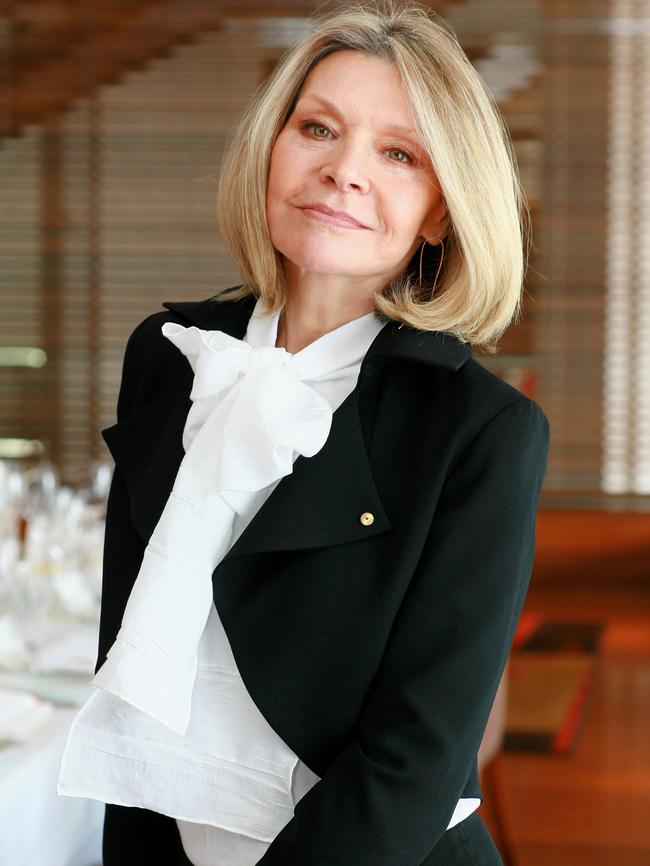
Zampatti died in hospital after complications from a fall at the opera in Sydney last week. She was 78.
Her death has triggered an outpouring of tributes for the fashion icon, who dressed everyone from royalty to regular women, society figures and politicians of all stripes.
“The family of Australian fashion icon Carla Zampatti AC has accepted the NSW Government’s offer of a State Funeral,” Premier Gladys Berejiklian said in a statement on Sunday.
“Carla was talented, generous and inspiring. A true trailblazer in every respect.
“On behalf of the people of NSW, I extend my deepest condolences to the family, friends and colleagues of Carla.
“Details of the State Funeral will be provided in the coming days”
READ MORE:Fashion feminist cut her own path
Christine Kellett9.25am:QLD records no new virus cases, outbreak traced to ‘environment’
Health Minister Yvette D’Ath has told a Sunday morning press conference that only one overseas-acquired case had detected; a returned traveller from Pakistan.
It follows one new local case detected yesterday, linked to the Princess Alexandra Hospital cluster.
Ms D’Ath said the hospital cluster was likely the result of environmental problems in one particular ward which is believed to have resulted in the outbreak.
Sunday 4 April – coronavirus cases in Queensland:
— Annastacia Palaszczuk (@AnnastaciaMP) April 3, 2021
• 0 new locally acquired
• 1 overseas acquired
• 72 active cases
• 1,489 total cases
• 2,305,574 tests conducted
Sadly, six Queenslanders with COVID-19 have died. 1,353 patients have recovered.#covid19pic.twitter.com/NUongbh6lW
“That’s why we have moved people out of that ward and we’ve done a deep clean, because we’ve seen two different individuals coming in as positive cases at different times infecting two health workers each. So we know it’s not related to one individual. We know it’s not related to one individual in relation to how they have donned their PPE and worn their PPE or any breaches by any one individual.
“Because it has happened on two occasions with four health workers over different days, there is a view that this is about the environment and that is why the deep clean has occurred. We are looking at, at the moment, other options of having a single area in one hospital where we can bring COVID patients, instead of spreading them over different hospitals in Brisbane.
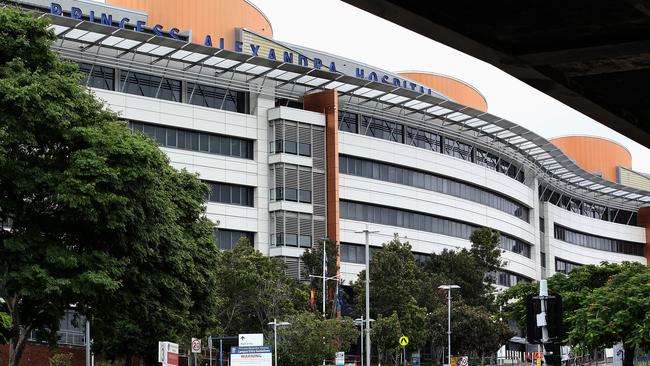
“We believe that will reduce the risk and help with our resources as far as our health workers and making sure it is only health workers who are vaccinated working with the staff. Those are the steps we are taking currently.”
Meanwhile, the number of returned travellers to Queensland has been halved to about 650 per week since Premier Annastacia Pałaszczuk complained that too many positive cases were coming from overseas to be treated in local hospitals, risking community transmission.
READ MORE:‘Severe’ warning: Qld to be lashed by rain
Adeshola Ore8.53am:We’ll work collaboratively with China: Dutton
Defence Minister Peter Dutton says Australia will work “collaboratively” with China to ensure peace in the region, after Mike Pompeo warned Beijing could launch military action against Taiwan within years.
Donald Trump’s secretary of state Mike Pompeo said that the best way to avoid conflict in the region was for the US and its allies to make it clear to Beijing that military action against Taiwan would come at a huge cost.
Mr Dutton, who was appointed to the defence portfolio in a cabinet reshuffle last week, said Australia was committed to working across the region to achieve stability and peace.
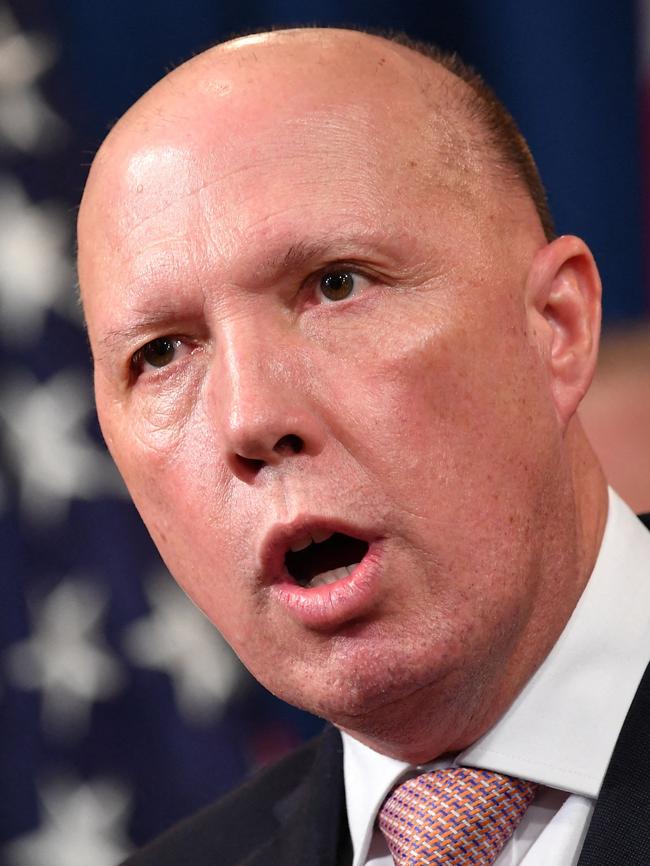
“Obviously China has held long-term ambition in regards to Taiwan. We want to make sure that there is peace in our region, that we can work in a collaborative way with the Chinese Communist Party and to make sure we can work with others across the region,” he told Sky News.
“We don’t want to see conflict and we want to make sure we work with our partners to make sure that doesn’t become a reality.”
“That’s why it’s very important for us to work closely with the United States. They are our most important ally.”
READ MORE: China’s biological weapons research a fresh pandemic risk: Pompeo
Glenda Korporaal8.20am:After the crash, a new normal for aviation
Former politician and deputy chairman of Rex Airlines, John Sharp says there has never been a better time to launch into the domestic aviation market in Australia.
While some see the world aviation industry in crisis, after a year of COVID-induced shutdowns and closed borders which has seen thousand lose their jobs across the in, ASX-listed regional airline Rex expanded into five different markets this week.
As other airlines have pared back their routes, Rex (Regional Express Holdings) has put on flights from Sydney to the Gold Coast, Melbourne to the Gold Coast, Adelaide to Melbourne, Port Macquarie to Sydney and Coffs Harbour to Sydney. That’s a big move for an airline that’s better known for ferrying passengers between country destinations of Wagga, Armidale or Mt Gambier. “It’s been enormously busy,” Sharp says in an interview from Rex’s headquarters at Sydney’s Mascot after a week of travel around the country opening up the new routes.
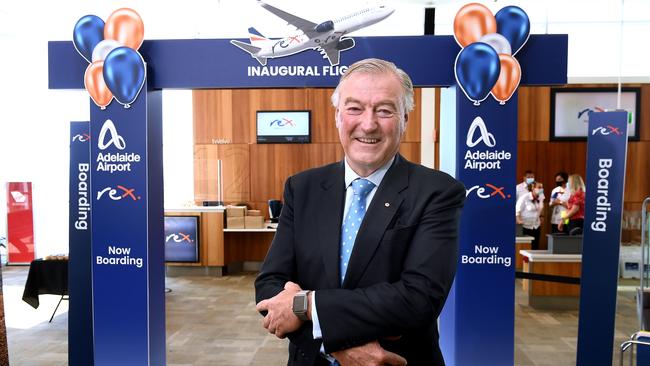
After a year of some of the biggest disruptions ever to the world aviation industry, which has seen international borders close, domestic travel down by 75 per cent in the year to January, the collapse and re-emergence of a slimmed down Virgin, the exit of Tiger airlines and travel hit by on again off again state border closures, a more hard-nosed industry is emerging.
Read the full story here.
Agencies7.40am:UK logs more AstraZeneca blood clot cases
Britain’s Medicines and Healthcare products Regulatory Agency says that of 30 people who suffered blood clots after receiving the Oxford-AstraZeneca vaccine in the country, seven have died.
But the agency adds: “The benefits of the vaccines against Covid-19 continue to outweigh any risks,” urging the public to keep taking the vaccine.
Meanwhile, a vaccination record has been set in Bhutan, which has vaccinated its population of fewer than one million at a record pace, with 60 percent benefiting from their first dose in a week.
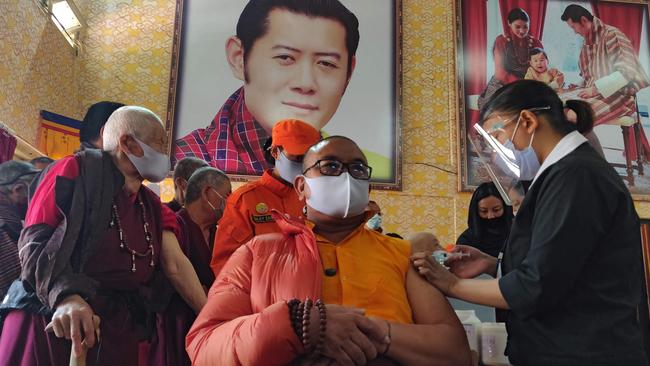
The Himalayan kingdom inoculated the same percentage of its population as world-leader Israel did in a month and a half.
READ MORE:Australia’s slow vaccine rollout will end in tiers
Anton Nilsson7am:Blood clot case ‘likely’ linked to vaccine
Australian health officials will continue to administer AstraZeneca coronavirus vaccinations after a Melbourne man who had received the jab fell ill with a rare blood clotting condition.
The Friday hospitalisation prompted an urgent meeting of independent experts on Saturday morning.
But the Australian Technical Advisory Group on Immunisation (ATAGI) and the Therapeutic Goods Administration (TGA) did not recommend changes to the vaccine rollout, acting chief medical officer Michael Kidd said on Saturday.
He said the illness was “likely” related to the vaccine, but investigations continue and there is no definitive evidence of any link.
Nevertheless, the relatively minor risk of rare cases of blood clotting was lesser than the risk of COVID-19 outbreaks, Mr Kidd said.
“I need to reiterate that at this time the risk of serious disease and death from COVID-19, if we experience a severe outbreak, especially among older Australians and those with serious health conditions, is far greater than the very small potential risk of a very rare clotting disorder associated with the vaccine,” Mr Kidd said.
Australian officials seeking to calm public fears have pointed to the United Kingdom, where millions of AstraZeneca jabs have only led to a few cases of the blood clots.
With 18 million doses administered as of March 24, UK health officials have found 30 cases of blood clots in people who have gotten the shot, according to the BBC.
Read the full story here.
Staff writers6.45am:China, Russia trying to undermine vaccination rollout
China and Russia are overtly and covertly trying to undermine the COVID-19 vaccination rollout in Western countries, like Australia.
Their aim is to prolong the chaos caused by the virus, undermine confidence in governments, promote their own vaccines as a diplomatic tool and even steal research, cybersecurity experts claim.
Australian researcher Ariel Bogle, who studied social media posts on vaccines, was stunned at extent of disinformation — including the panning of our jab suppliers.
“Some colleagues of mine in 2020 looked at some efforts, apparently by Russia-linked actors undermining the AstraZeneca vaccine and so, in January, we noticed this uptick in discussion of the Pfizer vaccine so we took a closer look,” she said.
“It became pretty clear … as various vaccine candidates emerged that they would become a kind of political tool, as well as a health tool, as a way to kind of broadcast scientific achievement for their country.”
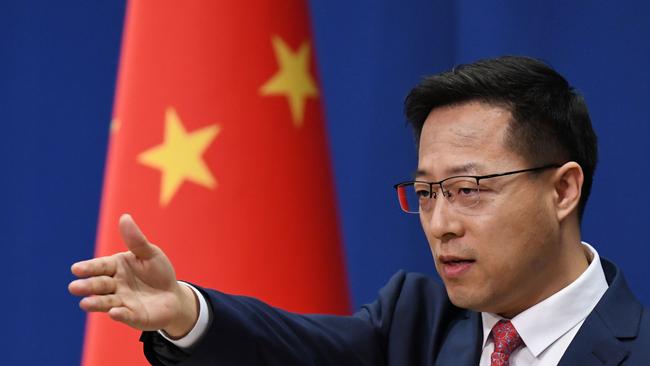
Ms Bogle cited the example of a tweet by a reporter for China’s state-owned broadcaster CGTN, who dramatised reports Norwegian aged care residents died after receiving the Pfizer vaccine, asking whether European media had picked up the story.
“Not that I can see,” the reporter tweeted. “Imagine if 13 people are assessed to have died from Chinese-made #vaccines, it would have made headlines EVERYWHERE!”
The reporter then tweeted two screenshots of headlines about 10 potential Pfizer vaccine-linked deaths in Germany — overlooking that they may have passed away from natural causes and that 800,000 others had been successfully vaccinated.
“Both tweets were retweeted by Zhao Lijian, a spokesperson for China’s foreign ministry, who has more than 877,000 followers,” Ms Bogle, of the Australian Strategic Policy Institute, said.
READ MORE:Vax probe over blood clot case
Anne Barrowclough6.30am:Push for vaccines to be sent to avert PNG crisis
The federal government has reportedly asked the US to send vaccines to PNG as the country faces an increasing coronavirus crisis.
Australia delivered the urgent shipment of COVID shots to PNG last week to protect the country’s “essential health workforce”, starting with those in the capital Port Moresby, where more than 100 hospital staff have succumbed to the virus.
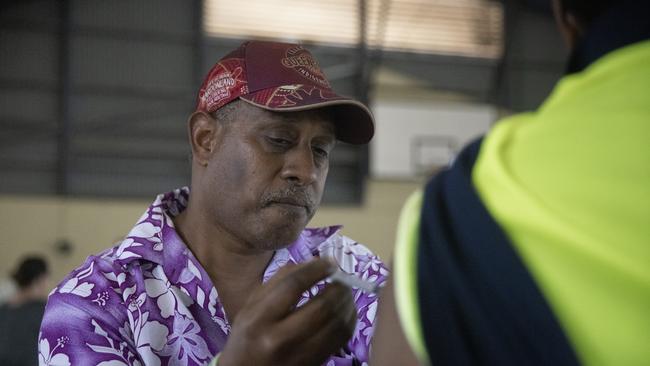
Channel 7 reports that as Europe continues to block the delivery of vaccines to Australia, the US may step in to help.
PNG has recorded more than 5620 positive cases and 56 deaths, but low testing rates mean the numbers are likely far higher.
READ MORE: PNG on the brink of a health system collapse
Agencies6am:Millions face Easter under virus curbs as US logs 100 million jabs
Millions of Christians around the world are facing another Easter weekend under restrictions because of coronavirus surges, but the hard-hit United States made good news as it crossed the milestone of 100 million vaccinations.
Worrying spikes in infections in many parts of the world, even as vaccine rollouts gather pace, have forced the reimposition of deeply unpopular restrictions.
Italy began a strict Easter lockdown on Saturday, with the entire country deemed a high-risk “red zone” during a time when families usually get together.
At Rome’s normally bustling Piazza Navona, site of the famed Fountain of the Four Rivers, a scattering of dog-walkers and cyclists could be seen enjoying the spring weather.
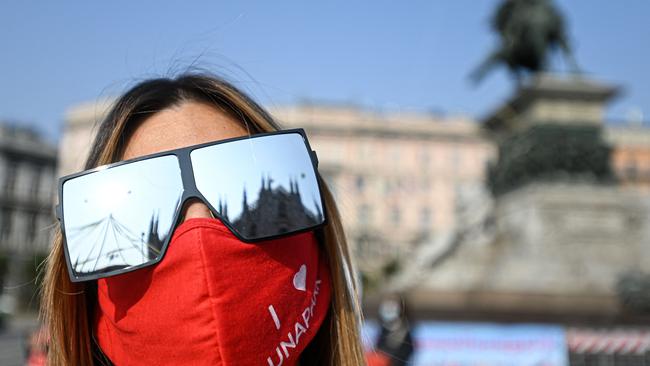
Shops selling essentials were open in the nearby winding streets, but without the normal throng.
“It’s getting annoying,” a man who gave his name as Giovanni said of the restrictions, as he walked his dog.
New curbs were also coming into force Saturday in France, where authorities are scrambling to deal with a dramatic rise in cases that has overwhelmed hospitals in Paris.
AFP
READ MORE:In search of an immortal soul in the modern world

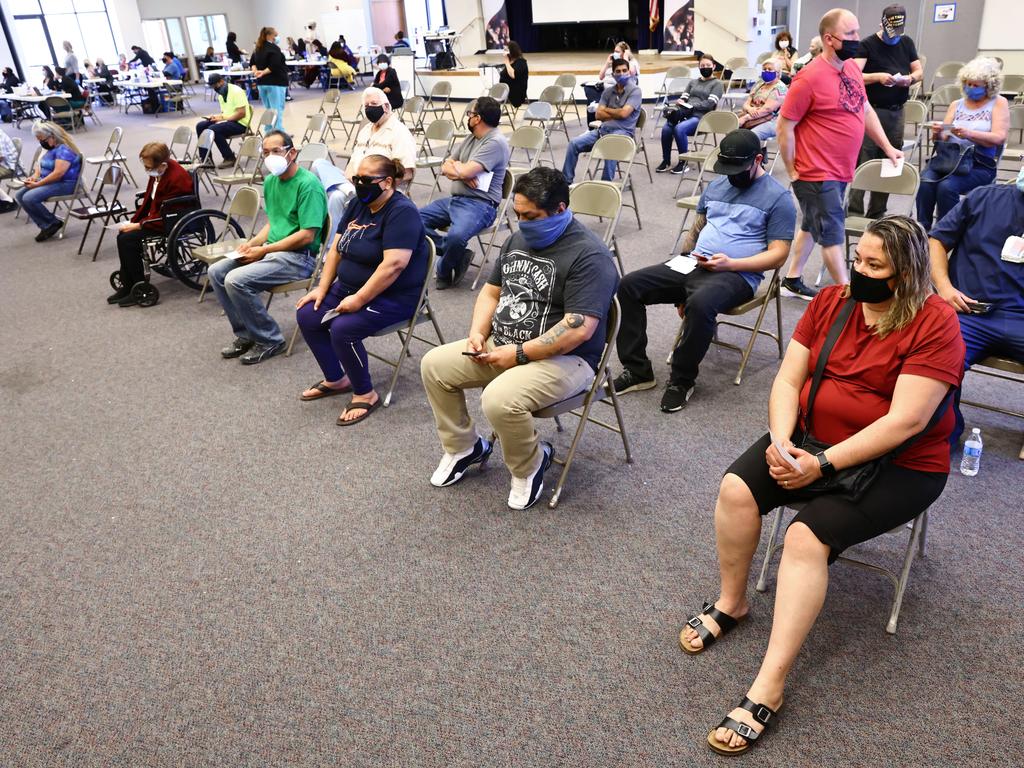


To join the conversation, please log in. Don't have an account? Register
Join the conversation, you are commenting as Logout